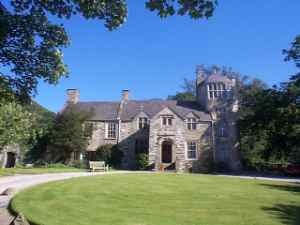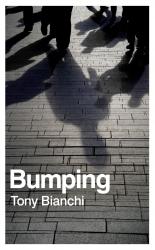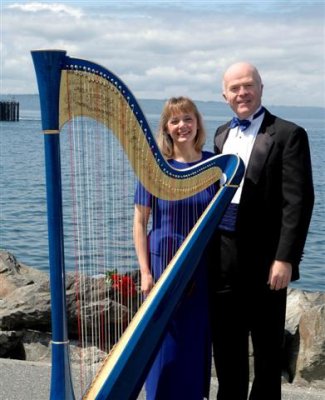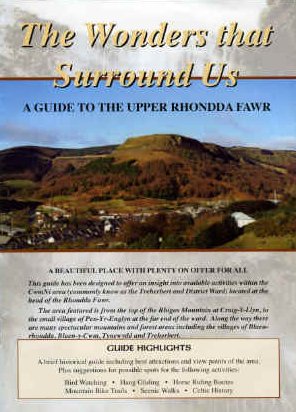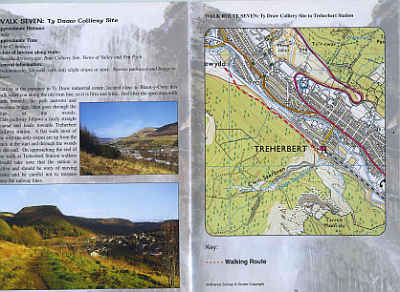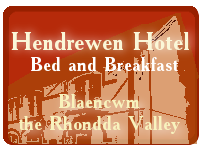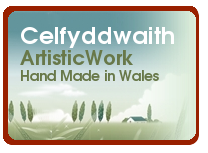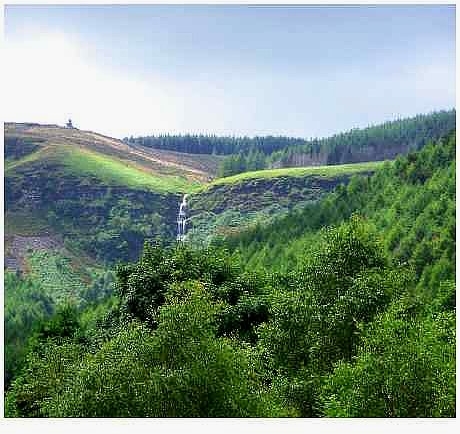| Reproduced from Elizabeth Chadwick's blog 'Living The History' by kind permission of the author.
"While preparing a couple of other blog posts, I thought I'd break off to mention Garth Celyn . 'Who'? or 'What'? you might justifiably ask. Like me, you may have come across it in Sharon Kay Penman's novels Here Be Dragons and The Reckoning, or Edith Pargeter's Brothers of Gwynedd novels, but it probably won't have registered beyond the moment of reading." "Even for me, when it cropped up again via a couple of Facebook acquaintances, I am ashamed to say that at first it passed me by. At one point I was even under the mistaken impression that it was a person! My excuse for this is my very busy schedule and I hang my head and apologise. Belatedly I came to realise that Garth Celyn is perhaps the most important historical sites in Wales and the place where Llewelyn Fawr (Llewelyn the Great) built his royal palace, overlooking the Menai Strait. That palace still stands today and is in the custody of the Gibson family who bought it all unknowing as a chicken farm in 1988." "Here are some urls to some excellent articles about Garth Celyn and it would be mad for me to spend a couple of hours typing out the contents when readers can go to them with a single click, so here are some web pages that you might find very interesting. I know I did once I'd been shaken awake! The other matter to note is that Garth Celyn could so easily have been lost to developers in the 1990's and now there is a campaign to preserve this unique and wonderful site for posterity. Please do join if you feel it's appropriate." http://www.garthcelyn.com/http://www.llywelyn.co.uk/index.html https://www.bbc.co.uk/wales/northwest/sites/history/pages/garthcelyn.shtml http://despenser.blogspot.com/2010/01/garth-celyn.html http://www.facebook.com/pages/Protect-and-Preserve-Garth-Celyn/301032666061 |

This novel is set in an alternative universe. One in which the Nazis succeed in conquering Russia and invading Britain after the failure of the D-Day landings in 1944. Such literary contrivances can seem very intrusive in a work of 'mainstream' literature but to Owen Sheers' credit the conceit is rendered with a masterful touch and seems almost essential in order to intensify the focus of the books' main theme. In the depths of a freezing winter in a remote corner of the Black Mountains in South Wales two people consider whether it is possible to 'cheat' history; leave the past behind and assert their shared humanity in the midst of bloody conflict. This is no pastoral idyll, nor is it history writ large in the manner of Raymond Williams' - "People of The Black Mountains", but the landscape and its history do figure prominently in the narrative. At one point during her childhood, Sarah, the heroine of this tale meets David Jones, the Welsh poet and artist who stayed with Eric Gill at Capel-y-Ffin in the 1920's. Her meetings with him are recounted thus:-
"And that was when the poet began to tell Sarah his stories, recasting the land and hills she'd known all her life as the backdrop for his Celtic myths, for tales of saints and soldiers, of kings and bards. His stories worked upon the valleys around them like his paintings. he spoke of places she knew or that she'd hard of before, St Peter's well, The Abbey, The Cat's Back, St Davids Cell, but the lens of his stories made them all new again. Some of the stories she'd even heard before, but never like this, never growing from the very hills of her birthplace."
Sheers here hints at the perhaps unique relationship which the Welsh people have with their landscape. The hills of Wales are indeed magnificent but they pale into insignificance, at least in topographical terms, when compared with the European Alps or the North American Cascades. Their special gravity and power lies in the fact that every nook and cranny, every fold and crevice, is invested with some human significance. The sum of history and legend which the landscape reveals is almost an externalization of Welsh identity itself. As R.S. Thomas puts it:-
"You cannot live in the present, At least not in Wales,"
Sarah, however, is bound to the valley she lives in by far more tangible ties. There is the instinct for survival which impels her to observe the cycle of the rural calendar and her loyalty to her husband, who goes missing early on in the book when he is called upon to participate in the resistance to the German occupation. By contrast, Albrecht, the German officer sent into the Olchon valley on a secret mission, is suffering from a severe case of 'hiraeth', or longing, both for his home and for his past destroyed by war. Unfortunately, he has no home to go back to. It was destroyed by Allied bombing. His war-weariness manifests itself in a desire to prolong his mission and in the uneasy truce which he and his men establish with the valleys' inhabitants.
The precarious situation which develops can only prove temporary. The climactic moments of the novel are reached as both characters have to decide how they will react when the cataclysmic events in the outside world threaten to come crashing in on them. The distant rumbles of war are heard from beyond the Olchon throughout the book. Owen Sheers handles these interruptions skilfully. His references to these events are subtle and sparing... just sufficient to preserve the tension of the main theme.
The preparation and training of the the Auxiliary Units of the British Resistance Organization are also woven into the fabric of the narrative; as is their ultimate fate. The book ends with both protagonists facing a stark choice which is really no choice at all. In order to survive they must turn their backs on everything they have known and attempt to find personal salvation in a future that is as uncertain as it is dangerous. Do they succeed? I leave it to you to discover how this final act of 'resistance' plays out .
Buy 'Resistance' HERE.
Owen Sheers Biography: BBC Wales Amazon: Owen Sheers
...
More Information on The Black Mountains
...

|

|
 |
...
Vote NOW For 'Only Men Aloud' In The Classical Brits - Voting Closes Tomorrow!!
By Ceri Shaw, 2010-04-22
| The NS&I Album of the Year is voted for by the public, to vote for Only Men Aloud go to www.classicalbrits.co.uk/voting Voting closes at midnight tomorrow ( Friday 23rd April 2010 )
|
Prize- Winning “Geordie Exile in Wales” Publishes Novel Of Youth, Age and Obsession on Tyneside 'Bumping' by Tony Bianchi
By Ceri Shaw, 2010-04-21
|
North Shields-born and bred Tony Bianchi is of Italian descent but learnt Welsh so well that he took the major Fiction prize in Welsh, the Daniel Owen Memorial Prize, in 2007, as well as being nominated twice over for the Welsh Book of the Year for his novels in the language. He also taught himself the strict poetic metres and was the 2007 judge for Welsh entries of the Ireland-based International Poetry Competition, File Filochta, which he himself won in 2004. The son of a policeman, he spent most of his career as Literature Director at the Arts Council of Wales. Bumping , published in May 2010, is Bianchis first novel in English. The first two of Bianchis Welsh novels explore with great sensitivity the compromises and realignments experienced by old people needing care and their families. Inspired by his fathers memories of his Merchant Navy days in wartime America, Bumping also takes age as a major theme in his portrayal of narrator eighty-six year-old Tom, struggling to adapt to life in a care home and the way his memories and thought trails are about quarter of an hour out of synch with everybody elses (indeed, John Williams, author of Cardiff Dead and Malcolm X, praises Bumping for this quality of slippage, A wise and tender portrait of ordinary lives slipping slowly out of kilter with the brave new world around them.) Tom is only one of three main narrators, however, making this a novel with truly wide readership appeal across the generations, as well as one of distinctive contemporary colloquial Tyneside voices. Bumping interweaves three stories: each presents a character whose obsessions and attachments become magnified through chance encounters, leading to unforeseen and ultimately catastrophic results. The bumping of the title conveys something of these random processes, as well as one characters passion for recreational lock-picking. The stories are told in a number of voices: middle-aged way leave officer Frank; teenagers Nicky and Barry, and the heart-breakingly confused and ever-optimistic elderly Tom. The themes include relationships with home and place, male preoccupation with mechanisms and systems, moral evasion, and the tyranny of random events. Bumping is also a novel about youth and old age, delusion, lock picking and Californian ladybirds. The author explains the meaning of the title and the impact of Tyneside on his writing, People bump into each other as simple as that. The novel turns around a number of chance events. All of the characters believe that order, even contentment, are just an arm's-reach away. If only they can get over the next hurdle, explain themselves a little better, show that they are worthy of love then all will be well. But the pattern of their lives is much more random than they can ever allow. 'Bumping' also means 'lock-picking'. You need to read Barry's story to find out why this is significant. This is what he does, what he can do, it is his own, personal attempt at controlling a little bit of the world. Among the books that have influenced me is Ciaran Carson's The Star Factory. I'd love to do for Tyneside what Carson did for Belfast in that book, and perhaps I'll work up to it. It needs doing. But it needs to be elliptical, full of the unexpected, the awkward, the plainly barmy! Tony Bianchi is currently a freelance writer and translator, living in Cardiff. Look inside and order 'Bumping' HERE. ( Available May 6th ) |
Members and readers will notice changes to the layout of the homepage as of today . We are aware that many reviews, interviews and other features are hard to locate on the site and so we decided to include a basic navigation panel in the left hand column. This will allow us to group certain categories of article on the linked jump page. We will be developing this feature over time and adding new categories. If members have any ideas for inclusion in this section please comment below or email americymru@gmail.com .
We have also included a 'YouTube' widget in the dropdpown Members Lounge menu on the main navbar ( YouTube ). This displays the top 100 or so youTube search results for the term 'Welsh' sorted by relevance. Many happy hours of browsing and viewing to be had there. We may change the search term from time to time in order to display fresh material. Keep checking back 
Diolch
|
Bronn Journey is a Washington based harpist of Welsh heritage who has a great reputation in the Celtic/Folk music scene in the Pacific Northwest. Bronn and his wife Katherine will be perfomring at the Thursday night Folk Concert at the North American Festival of Wales in Portland, Oregon on September 2, 2010. Q1 - What part of the United States are you from, and what is your relationship to Wales? A1 - I was born in Seattle. My grandparents are from North Wales. My grandmother is from Anglesey and my grandfather is from Penryndydreath (near Beddgelert). My grandfather was the music director for the first Gymanfu in Beavercreek, OR at the Bryn Sion church. Q2 - How important is your Welsh heritage to you and were you exposed to Welsh culture when you were growing up? A2 - My Welsh heritage is very important as is everyone's heritage. Our ancestors are the building blocks and stepping stones of what makes us who we are today. I am very grateful to the Seattle Welsh Women's Club for giving me an early opportunity to play my harp for an audience when I was young Q3 - At what age did you start playing the harp and what initially drew you to the instrument? A3 - I began playing the harp when I was 12. The harp is the Welsh national instrument. My mom wanted me to give the harp a try since she is closely aware of her Welsh ancestry. The Seattle Public Schools had a harp program where students were taught in group lessons. The readily accessibility to the harp was offered so I was enrolled. At the time when I was 12 I was not aware of the privilege that was offered in the public school setting. Q4 - How would you describe your style of music to those who are unfamiliar with your work? A4 - I did not take the traditional harpists path of performing classical music. During my high school years, instead of flipping hamburgers for a job, I began to play my harp as background music in fine restaurants and hotels in the Seattle area. That experience lead me to playing popular music. The harpist that everyone knows is Harpo Marx. I play more like Harpo than I do a symphony harpist. Q5 You have performed in a number of notable venues from Florida to Washington and Maine to California which ones particularly stick out as your favorites? A5 - It is very difficult to pick a highlight where we have performed. For the answer to this question in this case, I must say a highlight was playing in upstate New York for Jay Williams. He is a delightful man with a delightful family. He is the pastor in a small church in upstate New York in Augusta. Jay took us on a tour to Remsen New York, not far from where we presented our program. Remsen is where my grandmother first lived after she arrived from Wales with her family. If a someone who is aware of their Welsh ancestry and it is important to them, Remsen is a "pilgrimage" that such a person should make. For me, the performing is not the big part. It's the people that we meet that is the important part. Q6 - How often do you get back to Wales and what is the first thing you try to do when you get there? A6 - We don't have an opportunity to go to Wales often although the door is open as my mom's cousins have invited us . We hope to go again now that the our son's are out on their own. We can go without feeling guilty about it! My highlight of Wales was taking my mom their for her 80th birthday to see the place where her father was born. Her father was born on a large farm that is located on a hill overlooking Caernarfon Bay. My mother remembers the many stories that her father told of sheering sheep. On the day we drove up the long driveway to the 16th century stone farmhouse, workers were in the barn sheering sheep. It was a special moment in all of our lives to be generationaly connected to the land. Q7 - Wales, with its incredibly small size and population, seems to produce a remarkable amount of singing and acting talent. Do you have a pet theory as to why this is? A7 - Music is in the DNA! The land is beautiful in an artistic way. It would be acceptable to indiscriminately take a photo of any place in Wales, have it framed, hang it on a wall and have it considered as a work of art. It makes sense to me that artistic land would be filled with artistic people! The Welsh revival was very influential with the beautiful singing. The greatest work of art is centered around man's belief in God. Consider the great painters and their subjects that they chose. Michelangelo and the Sistine Chapel, Leonardo da Vinci and his painting of "The Virgin and Child with St Anne" and thousands of other paintings drawing inspiration from God. God gives us a melody. Some He gives the ability to paint, to the Welsh He gave the gift of music. Q8 - What are your dreams and ambitions for the future? A8 - My dreams for the future is to "pass the torch." Carry the torch while we can and to teach others to carry it by encouraging them. We are built on the work that others have done who have gone on before us. I am aware that I am laying a foundation for others. I hope to lead a life that the strong foundations are kept in tact. And of course, I would like the chance to play my harp in Wales. Q9 - What do you think is the best way for Wales to go about raising its profile abroad? A9 - The best way for Wales to raise it's profile is for the citizens to be a good example. Being a small business person, it's a question I ask of myself often. I am never going to be a giant in the music field. After all, it' the harp we're talking about. There is a big difference between having a big profile and having a great profile. Through extensive marketing, one could become big. Unfortunately, that's how we elect politicians in this country by marketing. Leading by example is how we become and remain great. That doesn't always lead to fame but it always leads to a good foundation by those coming after us. Q10 - Do you have any messages for our readers? A10 - A message for the readers is to keep up the music. Keep on singing. Do a good job at what you are doing. I like to say, "Keep HARPIN" on it!" For more information and tour dates for Bronn Journey, please visit: www.bronnjourney.com
|
|
At one time planning a vacation in the Rhondda might have caused raised eyebrows. But since the end of coal mining in the area much has been done to reclaim the coaltips and 'green' the valleys. No where is this more apparent than in the Upper Rhondda Fawr. The area surrounding the villages of Tynewydd, Blaenrhondda, Blaencwm and Treherbert has perhaps sufficiently regained its former semi-rural character to offer a tempting destination to vacationers and hill-walkers.
A forty page guide to the area's attractions has been prepared by local businessman David Michael Williams. The book can be ordered by writing to him at the address at the bottom of this page. Along with locations of former colliery sites and breif details of famous authors who were born in this part of the Rhondda there are many references to the magnificent Pen Pych mountan, a picture of which graces the front cover.
Pen Pych Mountain
David notes that Pen Pych is one of only two flat top spur mountains in Europe which alone is sufficient to make the mountain interesting but the following story makes it much more so ( with apologies for the lengthy quotation ):-
" It is locally told that long ago during the time of Roman expansion, the tribe at the top of the mountain had five prize bulls.. These were used to breed with the cattle of the farmers below on the valley floor. The Romans wanted this land and told the tribe to move, when they refused , the Romans demanded the bulls as payment.
The tribe werent prepared for this to happen so decided that if they couldn't keep their bulls then neither could the invaders, so they drove their bulls off the top of the mountain; they then took their heads and placed them on spikes outside the village. Displeased by this, the Romans swore revenge on the villagers.
Since Pen Pych was a religious site, where druids gathered, the Romans took their revenge during the summer festival. Following failure to take the village, the Romans sent a legion to kill them. During the assault they decided to attack from two sides, not knowing the layout of the land. With their forces split, and only one part facing the Celts, the romans were defeated.. The local Celts attacked the second group and defeated them, the whole Roman Legion was slaughtered. Thus the villagers remembered the tale of the five bulls. "
Walker's Paradise
The area abounds with Celtic remains - fragments of stone huts, summer storage holds etc - and a Roman 'police' action here at some time during their nearly four hundred year long occupation of the island of Britain is entirely conceivable. One can only speculate as to how accurately the folk tradition reflects the actual encounter . Whatever the provenance of the above tale what is certain is that Pen Pych provides a superb opportunity for hikers and hill-walkers. Toward the end of the book a series of walks are described together with illustrations and OS Landranger map extracts. Half of them involve routes on or near Pen Pych and many of them take in views of the superb Lluest waterfall. There are also walks around the old Ty Draw colliery site and other areas of interest to industrial archaeologists.
Destination Rhondda? AmeriCymru spoke to David Williams about the area and its potential as a vacation destination. David: As I child I remember playing in some of the old mine works, and the mines that were still open. The slag was still being dropped on the mountain. I was born in Penrhiwceiber, just over the mountain from Aberfan, I remember those days, when the school and the mines were closed, because everyone went to help. The valleys are green now and there are new trees being planted to replace the old pine trees. The dust has gone, and nearly all the old men with that cough have gone as well. People are starting to discover where they are living now, we are in the country side and it is beautiful. AmeriCymru: How good a base does Treherbert provide for a vacation in South Wales? Can you describe some of the more easily accessible local attractions? David: We have about five bed and breakfast accommodation in the local area, but we are only half an hour from Cardiff, Swansea or Brecon. In Porth there is the Rhondda Heritage park (Lewis Merthyr Colliery) In Treorchy we have the Park and Dare theatre, The Male voice choir and Brass band. We have Pen Pych and Cwmsearbren as described in the booklet. The Rhigos mountain road is the second highest point in South Wales. On Pen Rhys we have the statue of Our Lady and the Holly Well, and by it's name this is the place where the English chopped of the head of the Lord Rhys. There are many stone and Iron age sites in the area. AmeriCymru: When did you first hear the story about the Roman attack on Pen Pych? How widely known is this tale both in the valley and outside? David: This story came from Mr Todd-Jones the Head master of Pen Pych Infants school, I was told this about six years ago when I was researching the book. The book can be obtained by by order from the following address. Please include $4 ( UK 2.50 GBP ) to cover postage and packing. David Williams
More photographs of Pen Pych can be found on these pages:- Pen Pych Photo Gallery ( Images supplied by David Michael Williams and Ian Price ) Lluest Waterfall, Upper Rhondda Fawr |
















